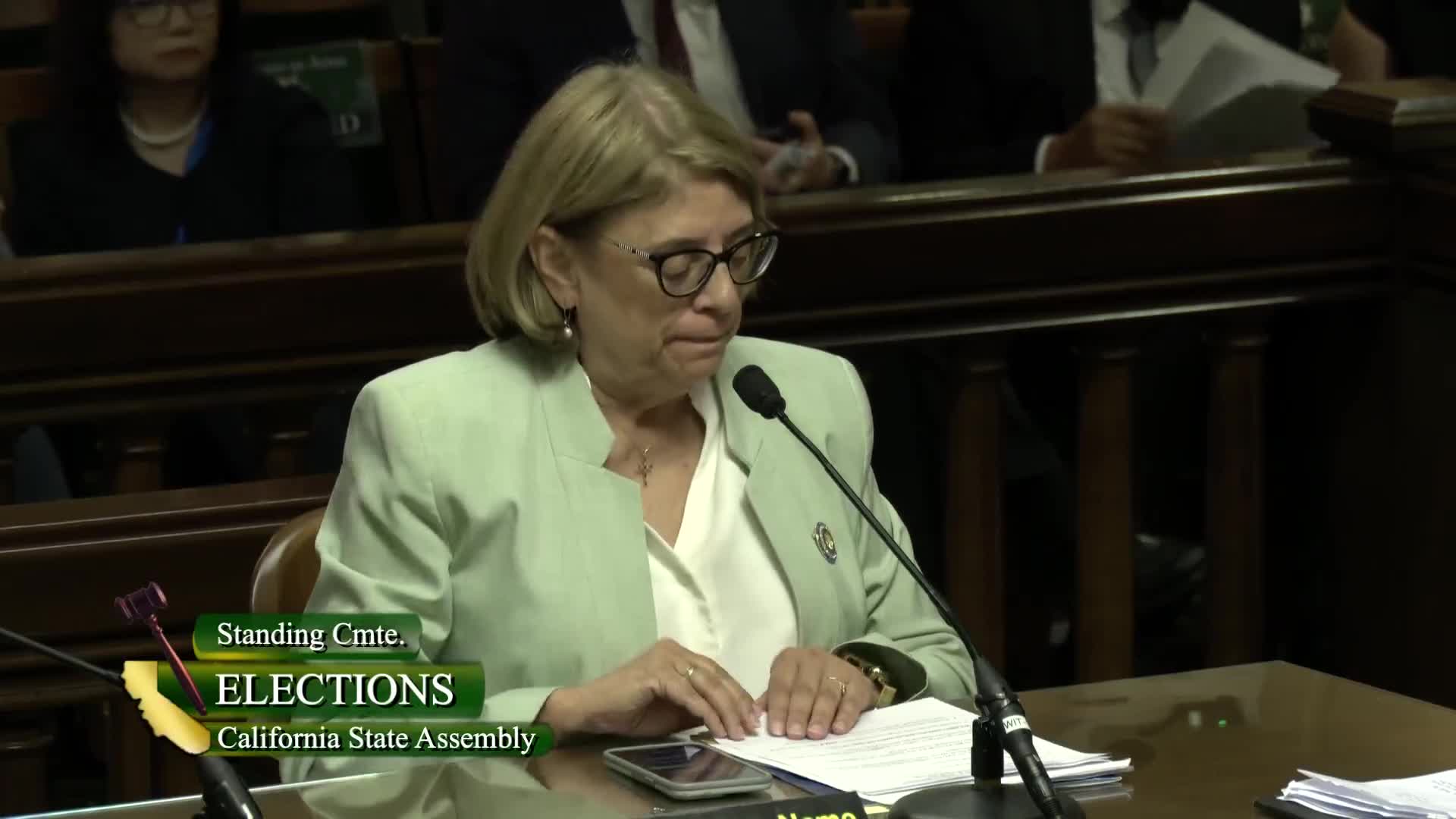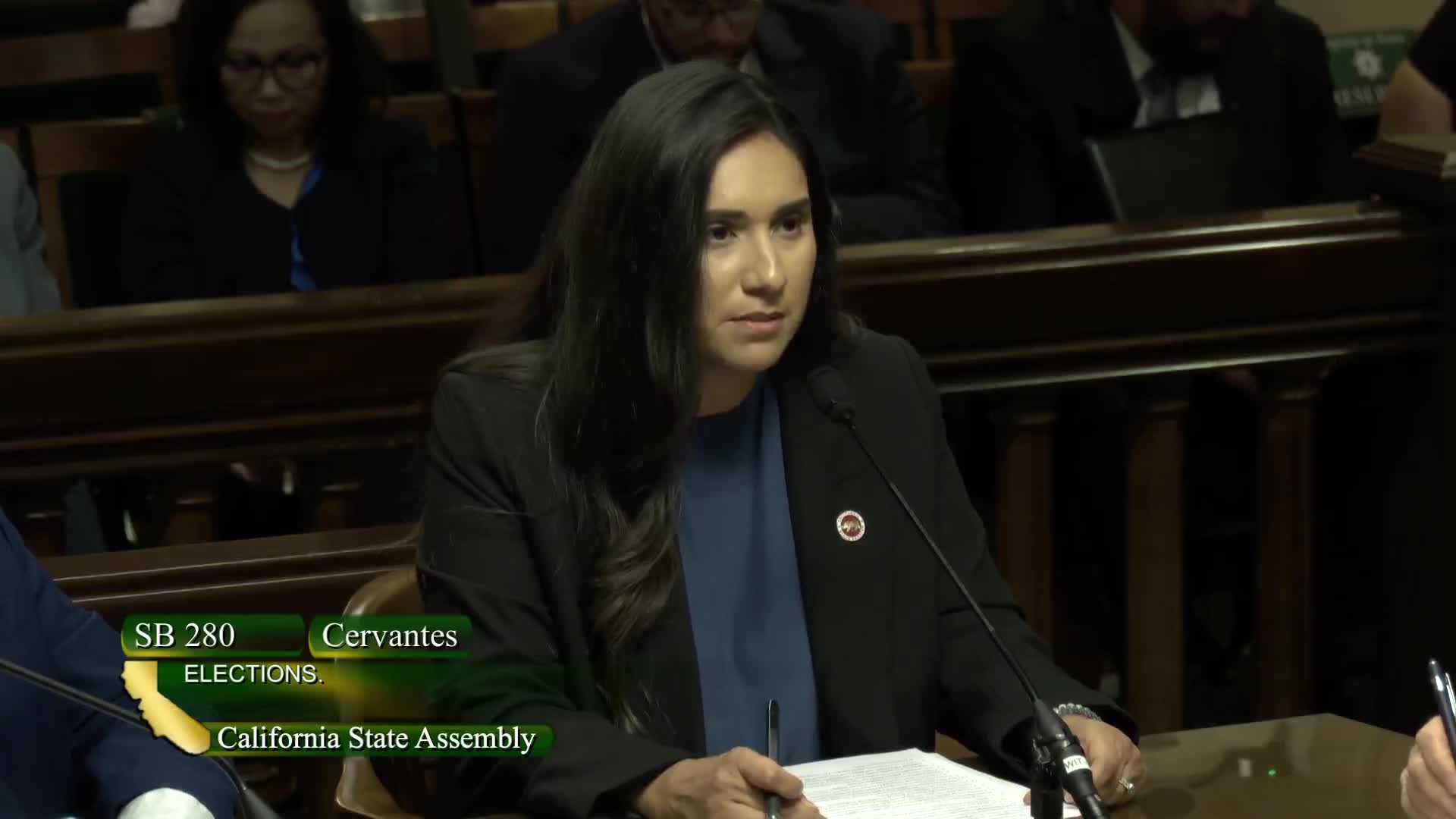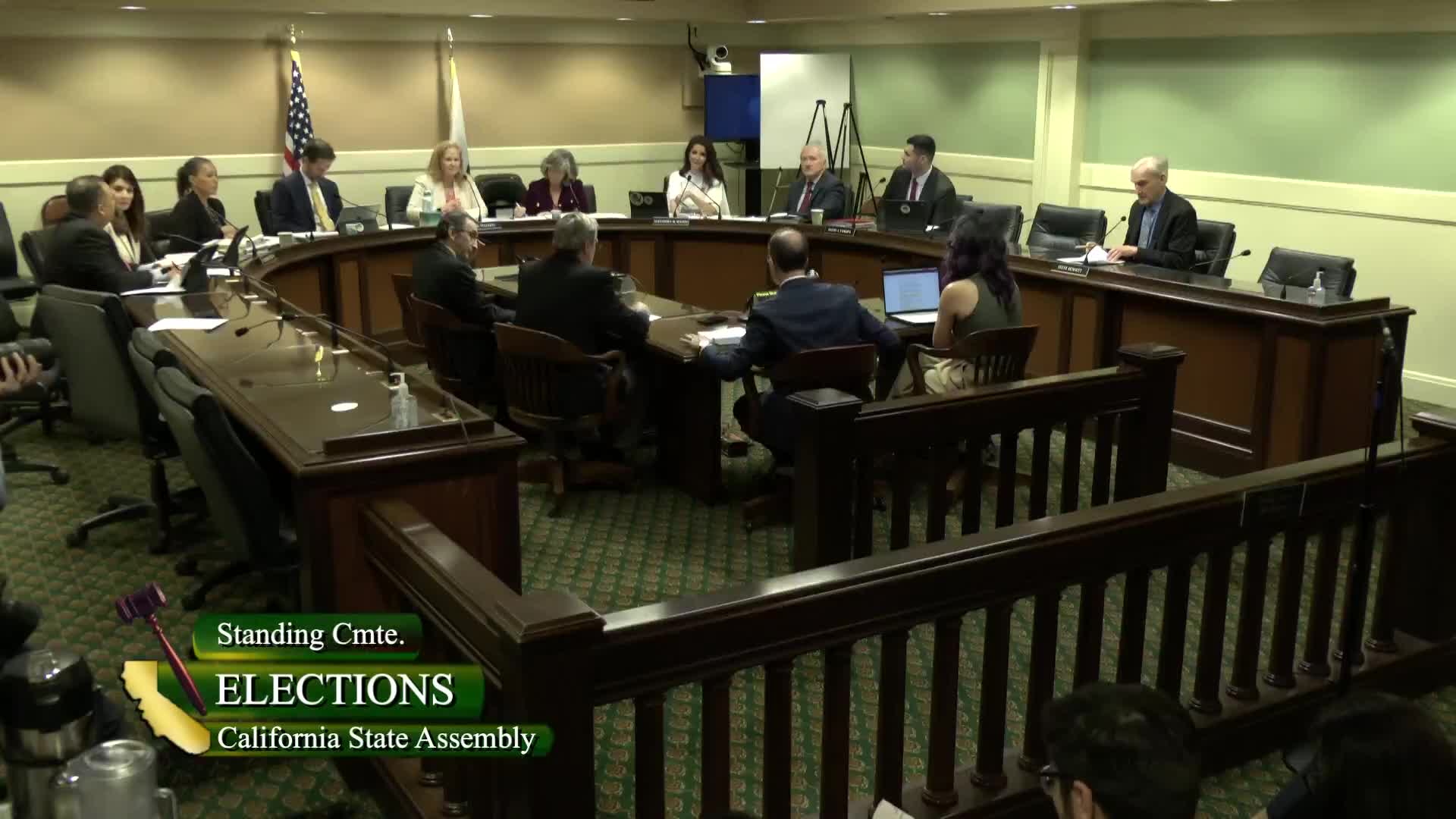Article not found
This article is no longer available. But don't worry—we've gathered other articles that discuss the same topic.

Informational hearing previews AB 604 maps proposed for a one-time voter referendum if ACA 8 passes

Committee approves SB 280 to fund Nov. 4 special election for ACA 8; bill advances to Appropriations

